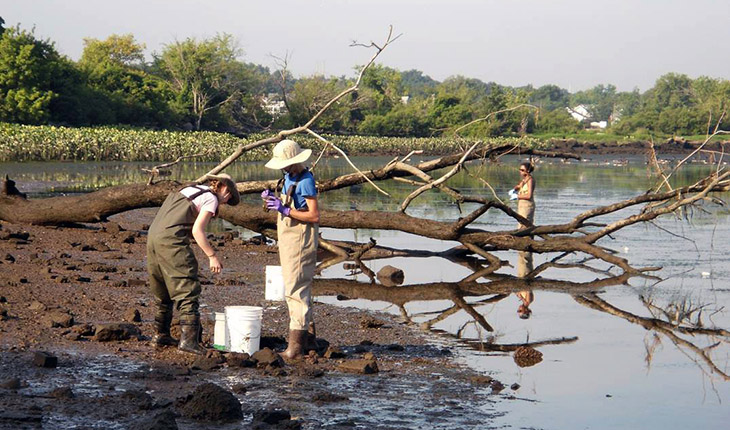New research from Geisel’s Children’s Environmental Health & Disease Prevention Research Center found that even relatively low levels of arsenic in drinking water sourced from private wells in New Hampshire had a significant association with infant gut microbiome composition.
Post Tagged with: "arsenic"
Elevated Bladder Cancer Risk in New England and Arsenic in Drinking Water from Private Wells
A new Dartmouth-led study has found that drinking water from private wells, particularly dug wells established during the first half of the 20th century, may have contributed to the elevated risk of bladder cancer that has been observed in Maine, New Hampshire, and Vermont for over 50 years.
Infants Who Ate Rice, Rice Products Had Higher Urinary Concentrations of Arsenic
Although rice and rice products are typical first foods for infants, a new Dartmouth-led study found that infants who ate rice and rice products had higher urinary arsenic concentrations than those who did not consume any type of rice, according to an article published online by JAMA Pediatrics.
Low-level Arsenic May Impact Fetal Growth, Dartmouth-led Study Finds
Fetal growth may be impacted by low levels of arsenic that pregnant women consume in drinking water and food, a Dartmouth College study finds.
Children Exposed to Arsenic May Face Greater Risk of Infection, Respiratory Symptoms
Children born to women who were exposed to higher arsenic during pregnancy have a greater risk of infections and respiratory symptoms within their first year of life, a Dartmouth College-led study shows.
Baby formula poses higher arsenic risk to newborns than breast milk, Dartmouth study shows
In the first U.S. study of urinary arsenic in babies, Dartmouth researchers found that formula-fed infants had higher arsenic levels than breast-fed infants, and that breast milk itself contained very low arsenic concentrations.
$13 Million Grant Will Fund Research on Toxic Metals
A $13 million, five-year grant will allow scientists at the Dartmouth Toxic Metals Superfund Research Program to continue and expand their research on the effects of exposure to arsenic, mercury, and other potential toxins on health.





